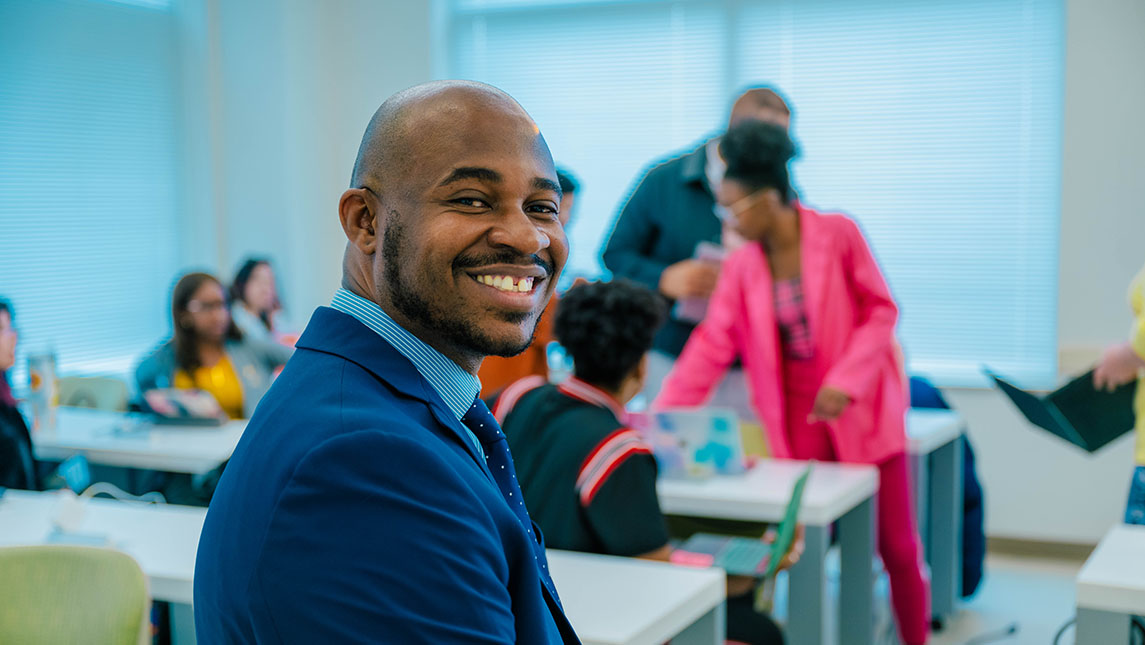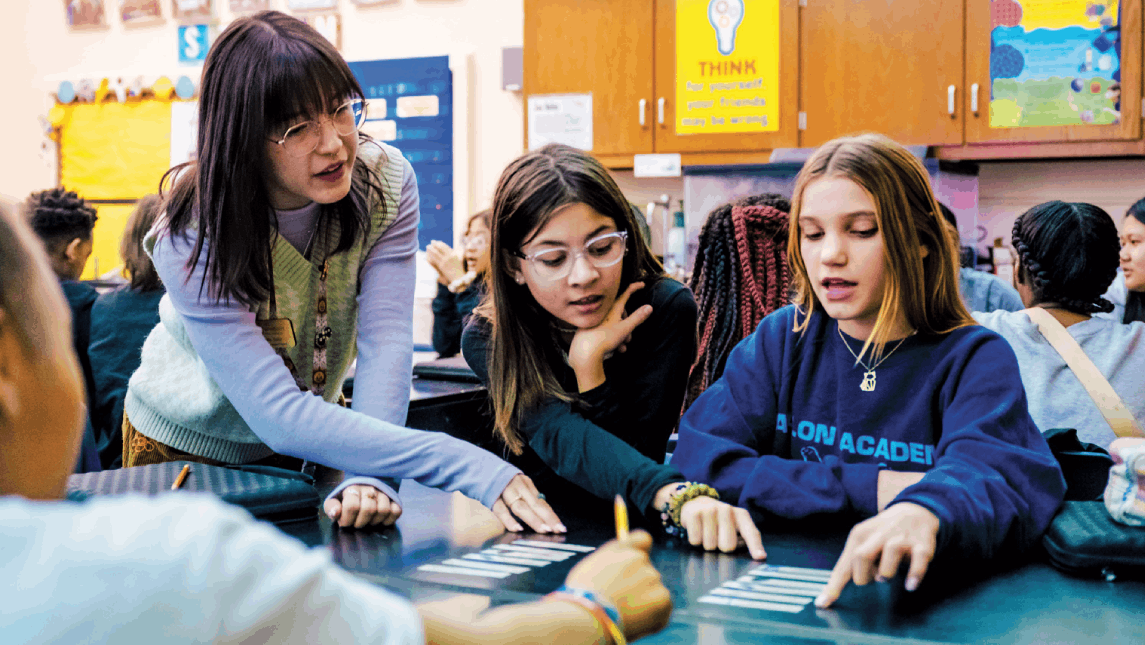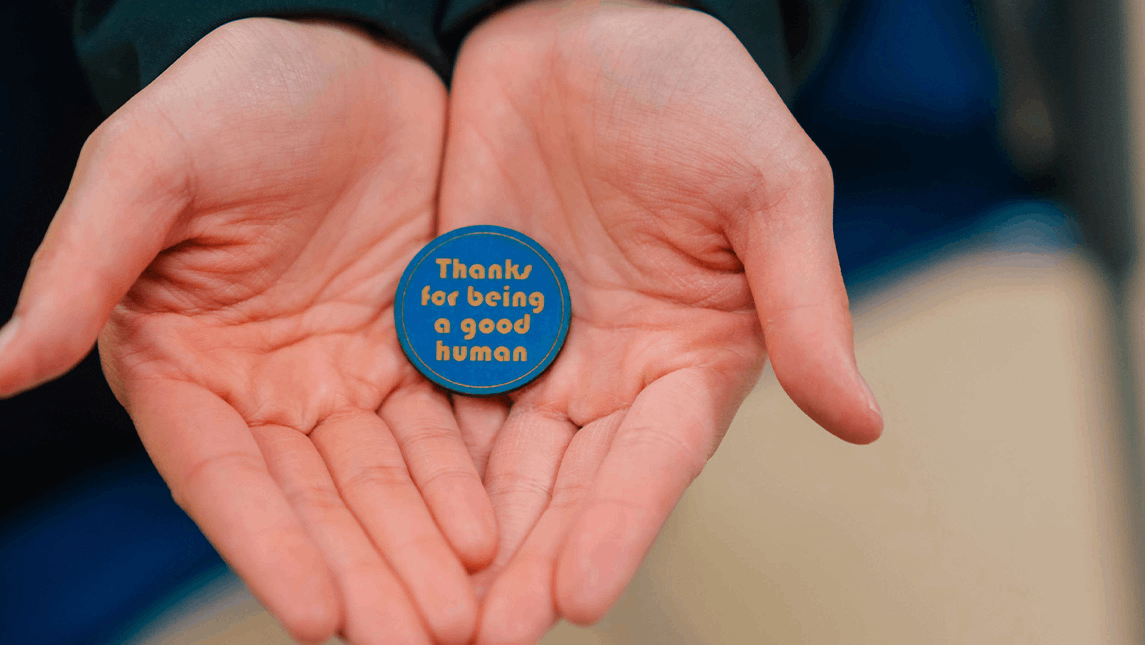After earning her Ph.D. in Counselor and Counselor Education from UNC Greensboro in 2008, Dr. Elysia Clemens headed west to Colorado and a tenure-track position in the counseling department at the University of Northern Colorado where she remained for over a decade. But then Clemens jumped at the opportunity to move into a role with the University of Denver’s Colorado Evaluation and Action Lab, a unit that assists government agencies and community partners with research into public policy matters.
Now the Deputy Director and Chief Operating Officer of the lab, Clemens helps to guide the unit as it conducts research into a wide range of issues. Clemens says that she uses her counseling skills as an active listener “to try and unpack what it is that our government partners are hoping to do.”
On her decision to move from the classroom into a role with the lab, Clemens said, “It was a unique opportunity in terms of the Laura and John Arnold Foundation (now Arnold Ventures) providing resources to start a policy lab. It’s one of those really unique opportunities. And the other piece is the cyclical part of the career trajectory, which I think UNCG’s program really sets people up well to engage in. And then when you move into a faculty role, it’s kind of one step removed from training, where you see and you’re proud of your students for seeing them develop into counselors and see their work. And then sometimes you get to the point where you want to go more systemic. It was that opportunity to move to that more systemic level that was motivating to me.”
The lab was created in 2017 and has a focus of designing, implementing, and disseminating research that is intended to inform policy development and the government’s investment in services and strengthen practices to improve the lives of the citizens of Colorado.
“I think what I enjoy most is being a thought partner to really forward-thinking and innovative government officials that are really focused on the idea of the public good and what can be done better to strengthen services to Coloradans,” says Clemens. “Related to that, I really enjoy the dissemination aspect of research. So we moved from the idea of research that kind of sits on a shelf, and instead, really focused on how we use the trusted messengers, use our partnerships, and build our partnerships to get good information in the right hands at the right time that it could be used to drive decisions.”
One of the problems that Clemens had a role in tackling surrounded children in foster care and the impact that had on their education. She found that child welfare agencies did not have access to the data on educational outcomes and graduation rates for these students. At the same time, the schools often did not know which children were part of the foster care system.
This is where Clemens was able to assist. “It wasn’t a group of students that we could look at data for, like you would English language learners or individual students with special education needs. So we connected about a decade of administrative data. We learned that about one in four youth who experienced foster care in Colorado don’t graduate with their class and earn a high school credential. Every time they move schools, the odds of them earning a high school degree drops pretty significantly. But because we had this partnership on board, we really were able to use that information to drive policy, we were able to get state legislation passed to help keep students in foster care in their same schools if that was in their best interest and provide funding for transportation. We were able to develop a systematic way for those state agencies to share data on educational outcomes.”
One of the things that Clemens is most proud of is seeing government partners take ownership of the lab’s findings and data and using it in order to make informed decisions that improve the lives of her fellow Coloradans. When those officials are able to fully understand the data that has been presented to them, say that they’ve worked with research partners to identify potential solutions to a problem, and then guide legislators and the budget planning process, that is when Clemens feels her work has the biggest impact.
UNCG’s Department of Counseling and Educational Development (CED) helped to shape how Clemens tackles the research she undertakes in her current role. Along with building a foundation of research and a cognate in statistics, Clemens credits the clinical and group facilitation skills she developed in the program for being transferable outside of a traditional counseling setting. She said, “The teaching skills and the mentorship in that space, because in order to convey information for policymakers to use it, it’s quite similar. How do you make information digestible? How do you make sure that you’re providing not just high-level findings, but also the nuance behind it so that smart decisions can be made.”
Looking back on her time at UNCG, Clemens has fond memories of her cohort and the bonds that group of eight women, affectionately known as the “Great Eight,” built together. She says, “I think some of what I remember is just the fun stuff that happened outside (of the classroom) that first year. We did a silly award ceremony that Dr. (Kelly) Wester helped emcee and some of the fun community things that I think are somewhat unique to the opportunity to be in a full time doctoral program. When you’re really there, and you have that community, it makes all the other things a lot more fun.”
Community is a word you hear often from members of the program’s cohorts. The program allows its students to develop close relationships with each other.
Says Clemens, “I think it’s the program design around a primarily full time day program that I think is a big piece of it. I think the intentionality of the first year seminar, where rather than splitting people up into individual advisors at the beginning of their program, it’s almost that group advising through that seminar process that creates cohesiveness and consistent information. There was office space for doctoral students, and very intentionally, those offices were mixed across cohorts so that you built relationships with people in adjacent cohorts. That, to me, very much helped in terms of that community.”
In regards to what graduating from UNCG has allowed her to do, Clemens said, “With my UNCG degree I have been able to consistently have a career that’s meaningful, that’s challenging, and that is consistent with my beliefs about what makes a difference in the world.”



